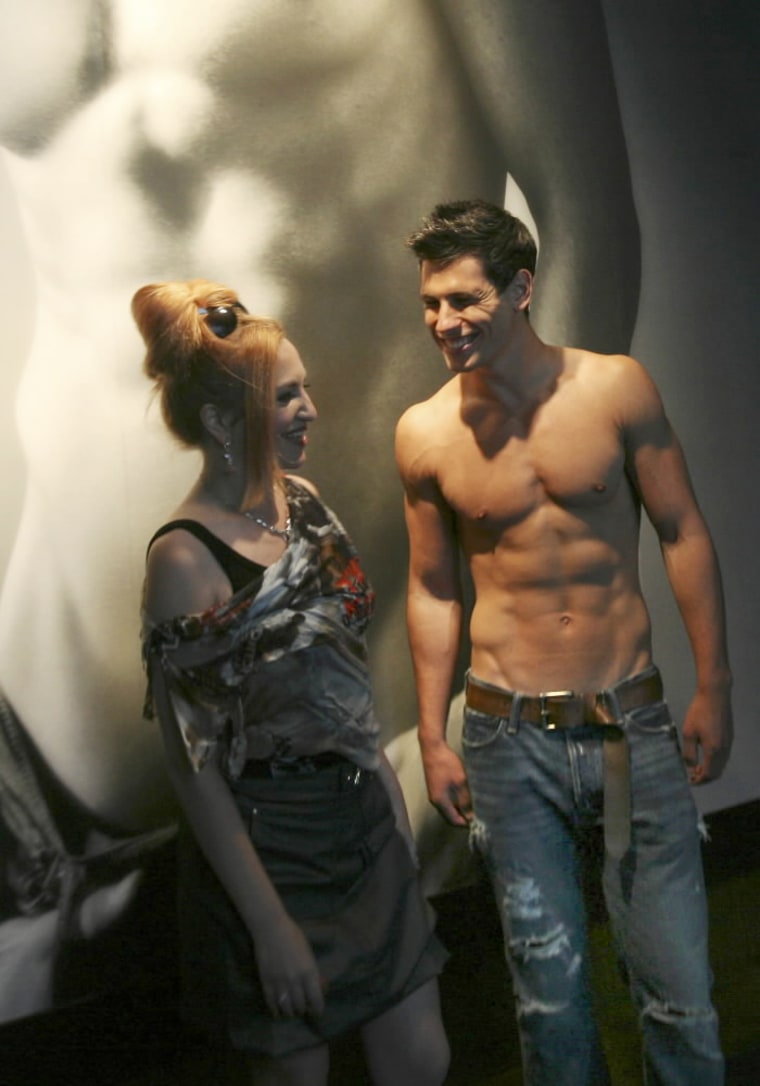To the dismay of the Abercrombie & Fitch empire, teenagers whose parents have cut back on their allowances may be coming to a recessionary revelation: Paying $90 for torn jeans isn't that cool anymore.
While other retailers are responding to the downturn with red-lined price tags and tempting promotions, upscale Abercrombie & Fitch isn't budging on its price points. This scarf, for example, will still cost you $58. The company is fiercely protecting its image as a "premium" brand, and, as a result, it's getting snubbed big time by its once cultlike, ever-loyal fan base.
Abercrombie & Fitch just posted a 34 percent drop in same-store sales from last year — the worst among retailers in March.
Teens who haven't abandoned the shopping mall altogether are buying their clothes at stores like American Eagle and Aeropostale, which are increasingly positioning themselves as budget-friendly. Both stores are currently pushing promotions online, like buy-one, get-one free deals. Check out Abercrombie's Web site, though, and while you won't find any such online promotions on the latest season's items, you will find (warning!) a model with his hand down his pants.
There was a time when Abercrombie's sexy ad campaigns and half-dressed salespeople were irresistible to teens. A time when an endless line outside the flagship Fifth Avenue store curled around the block each morning. A time when the store effortlessly convinced young people that wearing two expensive polo shirts was infinitely more stylish than wearing just one. And the teens followed like lambs.
There were days when A&F stock topped $80 per share, but those days have passed. Now, shares have sunk to less than one-third of that, and it seems that the embroidered Moose logo may be losing its cachet.
The company thinks not. A&F is still moving forward with international expansion plans and, unlike other retailers, didn't significantly reduce inventory for the year. CEO Michael Jeffries is daringly optimistic and perhaps emboldened by the way he handled the 2001 recession. Bucking conventional wisdom at the time, he raised prices instead of succumbing to pressure to slash them.
"The important thing is that I didn't overreact," he told the New York Times in 2004. "When things start to go down, many retailers kill themselves; they throw out the baby with the bath water."
Now he's applying the same formula to the current meltdown. "We hear your concerns," Jeffries said in an earnings call with analysts in November, but "promotions are a short-term solution with dreadful long-term effects."
Luxury purveyors fear that cutting prices will cheapen and irreparably damage their brands, besides hurting margins. But are denim discounts really more dreadful than this? Analysts are skeptical that A&F can sustain their let's-pretend-the-economy-hasn't-collapsed strategy for much longer. While the 2001 recession lasted only eight months, we've been in this one for more than a year now, and retail isn't expected to rebound until August of 2010.
And when you're in the business of being trendy and catering to fickle teens, that's enough time to become passé if no one's buying your stuff. And that's especially true if a new sect of young consumers get used to shopping for cheaper clothes somewhere else.
Not to fear, though. Jeffries himself, who frequently refers to employees as "dudes" and is mysteriously tan for living in Ohio, still thinks that Abercrombie's clothes are too cool to resist. But then again, he's over 60 years old. Not exactly the target demographic.
Mr. Jeffries, dude, hate to break it to you, but it looks like the wave you're riding is about to crash.
